
Corporate social responsibility practices enabling public relations goals: Analytical study of corporate companies in Jharkhand
Dr. Jannes Punita [1]
Dr. Neha Tiwari [2]
Abstract
In the commercialmodel of any corporate organization we find the significant presence of fundamental departmentthat represents the corporate image.This wing comprises of Public Relations (PR) and Corporate Social Responsibility (CSR). Designing an effective positive image of an organization in the competitive climate of business is very essential.
Infrastructural progression, digitalization practices, industrialization showcases the story of development in Jharkhand. However, the state holds a backseat in various development indicators, presentingan inconsiderate picture of the state.
Keywords: Jharkhand, Csr, Corporate Social Responsibility, Public Relations, PR
Introduction
A countless number of companies are investing a part of their profit percentage globally in the name of CSR irrespective of mandate. By investing in CSR a company not only does well for people and the environment but also for themselves by creating an intangible asset of goodwill among the people in the form of PR. Our study is focusing on this missing link of CSR expenditure for sustainable development. Every penny counts if used effectively and impacts millions of lives, calling it a worthwhile investment. Through planned CSR programs the corporate will also create goodwill among the local populace.
Public Relations
Public Relations is an important instrument of the company for setting up prolonged intangible asset of goodwill with all the key associated elements like the stockholders, the employees, the customers, the suppliers, the community and the geographical surroundings.
To achieve the goals of the organization efficaciously and effortlessly, PR helps a lot. However, Public Relations does not support in establishing a positive picture of a negative group as it cannot be carried out in a long run. If the products or, services of an organization are excellent it needs PR campaign to engage, inspire and excite the public towards the product or service which is the ultimate goal of the drive. This not only boosts the public involvement but also strengthens its finer image.
Corporate Social Responsibility
Corporate Social Responsibility is practiced by the business houses for age long time. Øyvind Ihlen, Jennifer Bartlett and Steve May in ‘The Handbook of Communication and CSR’ state that the company’s works are largely examined of its consequences on humankind and its surroundings.
One cannot think that a company will officially announce that its only aim is profit making for its investors and owners. In fact, the company declares that they maintain equilibrium between communities, its surroundings versus revenue generation. Hence, the company proudly announces that they exercise CSR.
Corporate Social Responsibility Policy Rules, 2014
The Ministry of Corporate Affairs, Government of India notified the Corporate Social Responsibility Policy which came into effect on 1st of April, 2014 cites the power conferred under section 135 and Schedule VII of the Companies Act, 2013.
The CSR norms is approvable on companies having Rs. 1,000 cr. or more turnover, or Rs. 500 cr. or more net worth, or Rs. 5 cr. more net profit needs to establish CSR. Such companies ought to assure that the company allocates 2% of its average net profit over the 3 immediately preceding fiscal years.
OBJECTIVE OF THE STUDY
OBJECTIVE I: To study the efficacy of the CSR activities done by the corporate companies.
OBJECTIVE II: To analyze the corporate image of business entities involved in CSR programs.
RESEARCH METHODOLOGY
By conducting a sample survey with professionals working in public and private sectors in district headquarters and block-level have been involved to give their input. The questionnaire comprises of fields related to our purpose of the study.
DATA COLLECTION
Primary data collection through Questionnaires
- Secondary data collection from various sources such as Newspaper Articles,
- Research Papers write ups and Magazine Articles, official website of UNDP, Centre and State Government portals and many more.
SAMPLING DESIGN
The study was conducted among 731 working professionals involved in public and private sector companies and residents staying nearby the corporate companies’ base plant. The respondents belonged to the industrial-rich active regions of Jharkhand namely, Ranchi, Jamshedpur, Bokaro and Dhanbad. The questionnaire was distributed and face to face interaction was carried out.
DATA ANALYSIS
The gender distribution of respondents is shown in the table given below:
OBJECTIVE I: To study the efficacy of the CSR activities done by the corporate companies.
- Respondents knowing about Corporate Social Responsibility.
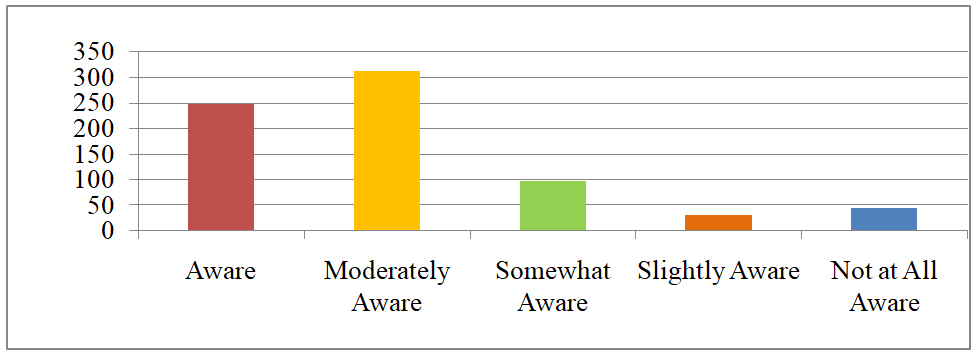
The data shows that maximum people of the state are aware of Corporate Social Responsibility.
- Respondents view on Corporate Social Responsibility practices of the company being effective.
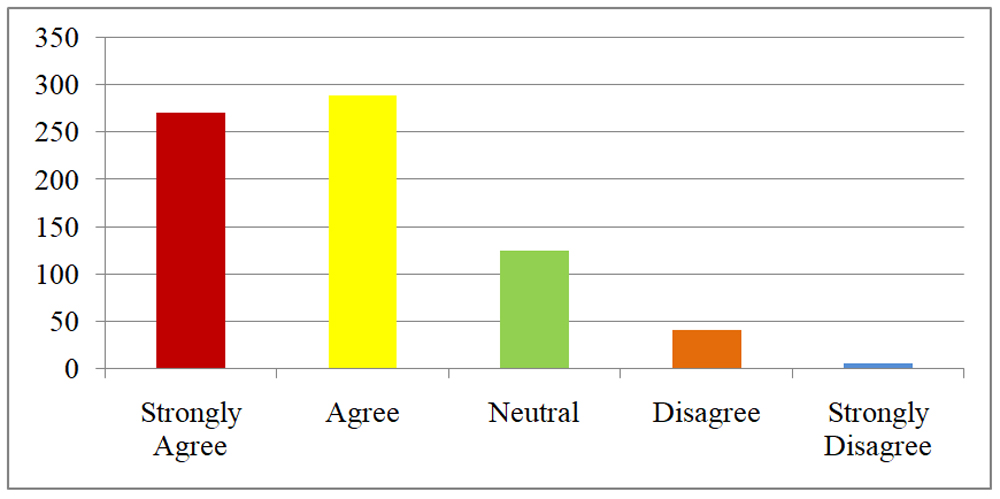
The data shows that most of the people find Corporate Social Responsibility practices of the corporate companies to be effective.
- Respondents on Corporate Social Responsibility activities promoting well being of the society.
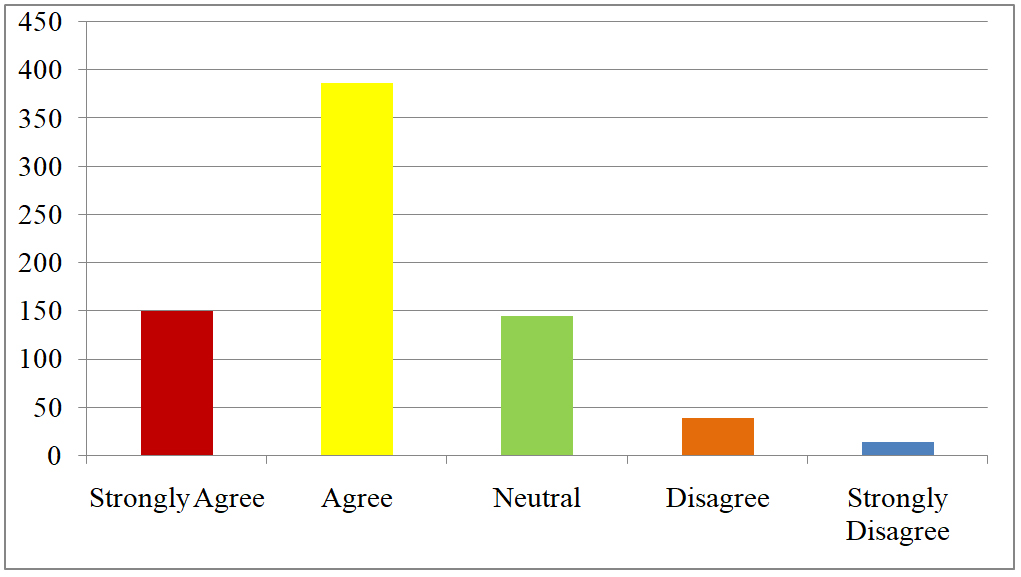
The findings show that most of the people find Corporate Social Responsibility activities of the corporate companies promoting well being of the society.
- Respondents on Corporate Social Responsibility activities adding value to their lives.
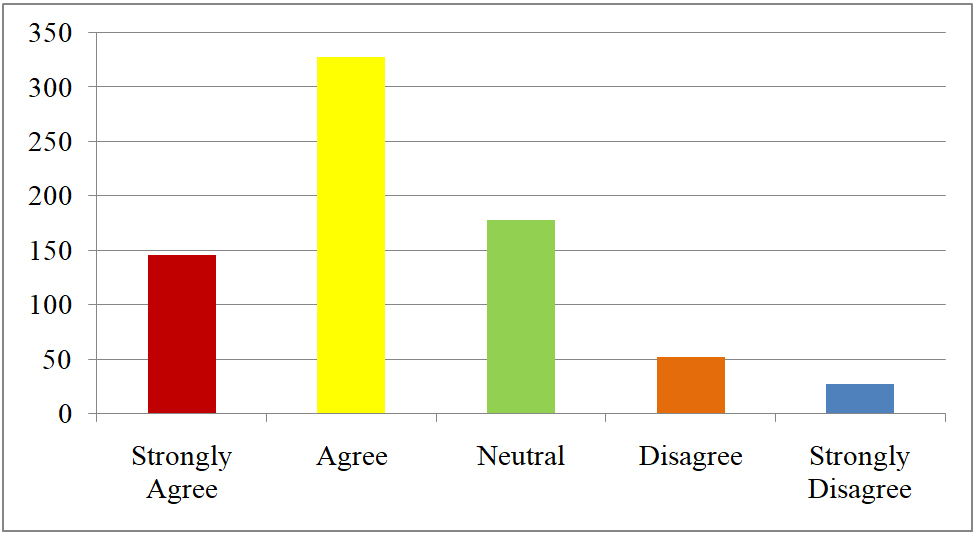
The chart shows that most of the people find Corporate Social Responsibility activities of the corporate companies adding value in their life.
OBJECTIVE II: To analyze the corporate image of business entities involved in CSR programs.
- Respondents on positive image of a company because of its good Corporate Social Responsibility activities
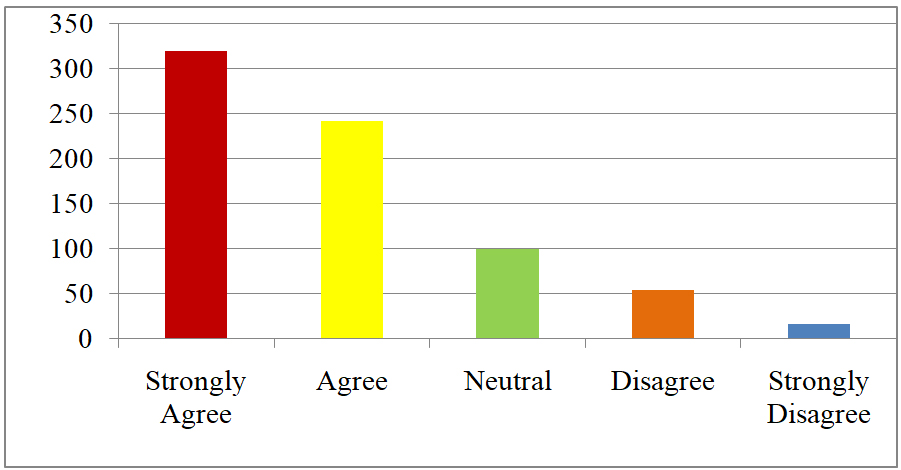
The data shows that most of the people find positive image of a company because of its good Corporate Social Responsibility activities.
- Respondents on people like working in a company that does Corporate Social Responsibility activities instead of company that is not involved in CSR practices.
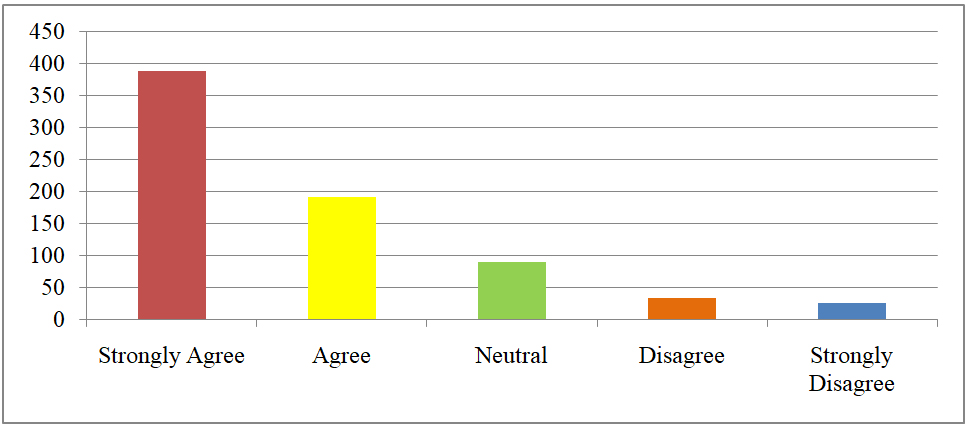
The data shows that majority of the people like working in a company that does Corporate Social Responsibility activities instead of company that is not involved in CSR practices.
- Respondents on people recommending their friends and relatives to work in the company doing Corporate Social Responsibility activities.
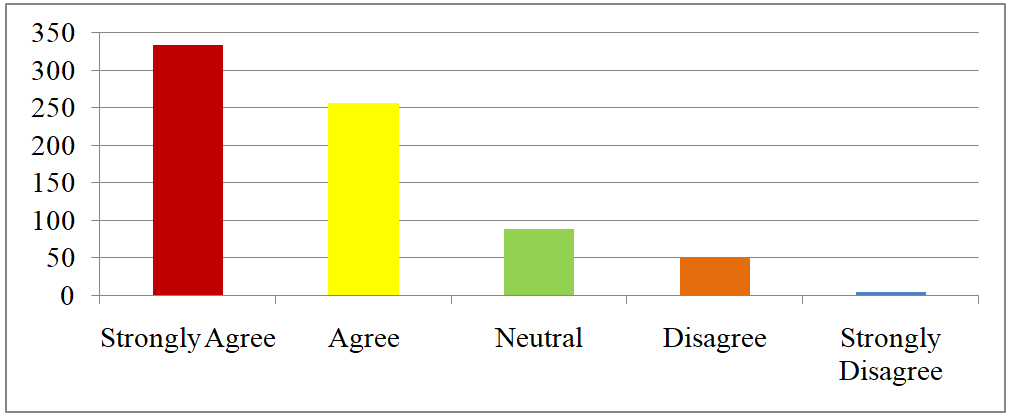
The data shows that majority of the people will recommend their friends and relatives to work in the company doing Corporate Social Responsibility activities.
- Respondents on Corporate Social Responsibility activities have helped in enhancing the company’s corporate image.
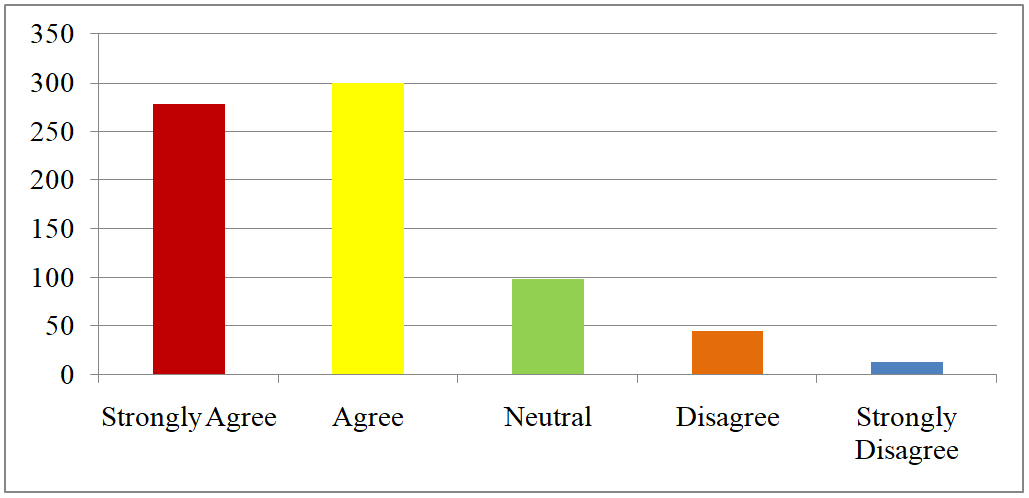
The data shows that most of the people find Corporate Social Responsibility activities of the corporate companies have helped in enhancing the company’s corporate image.
- Respondents on Corporate Social Responsibility activities helped in creating the company’s goodwill.
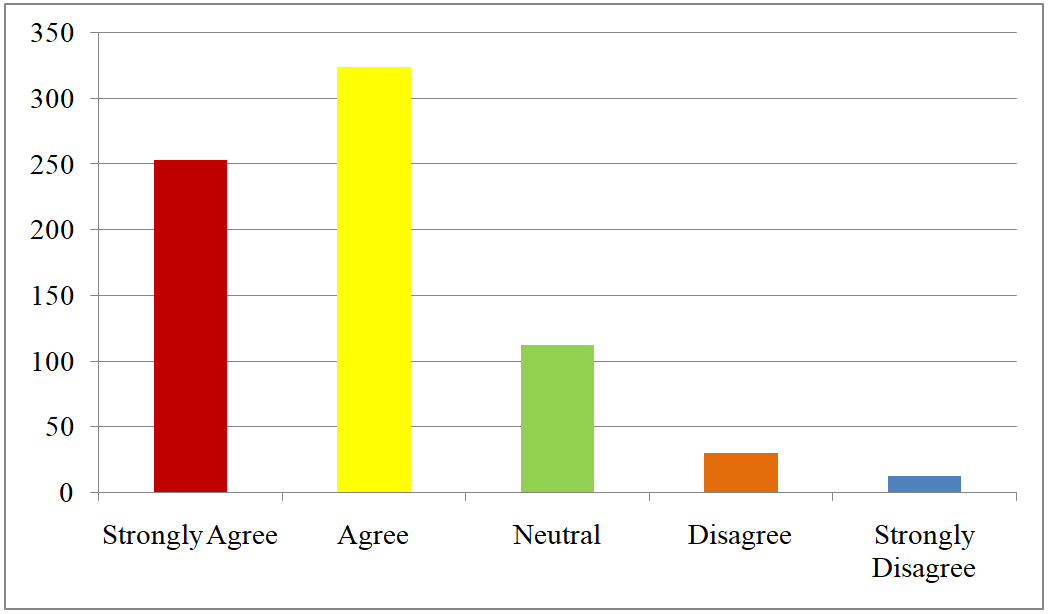
The data shows that most of the people find Corporate Social Responsibility activities of the corporate companies have helped in creating the company’s goodwill.
OBSERVATION: Through the above questions we can draw inference that CSR activities done by business enterprises has a significant impact on providing sustainable development to citizens of the State. Because of the well planned CSR activities, the companies have generated good repo with the local populace. Also, the CSR activities are efficient in the area where the business operates.
CONCLUSION
CSR activities done by the corporate companies are quite commendable for the development of the people living in the areas. However, there is always a scope for going deep and attaining the sustainable development of people residing in the state of Jharkhand.
REFERENCE
- https://finance-jharkhand.gov.in/pdf/Executive_Summary_Jharkhand_Vision_and_ Action_Pln.pdf
- Argenti, P.A. (2007), Corporate Communication. NY: McGraw-Hill Higher Education
- Cannon, T. (1992), Corporate Responsibility (1st). London: Pitman Publishing.
- Grunig, J.E. & Hunt, T. (1984). Managing Public Relations. Belmont: Thomson Wadsworth.
- Holmes, S.L. (1976). Executive Perceptions of Corporate Social Responsibility. Business Horozons, 19(3), 34-40
[1]PhD, Department of Journalism &Mass Communication, Jharkhand, Rai University, India Email Id: jpunita07@gmail.com
[2]Assistant Professor, Department of English & Professor In-Charge Department of Mass Communication, SKU, Email Id: nehatiwarikcc@gmail.com
